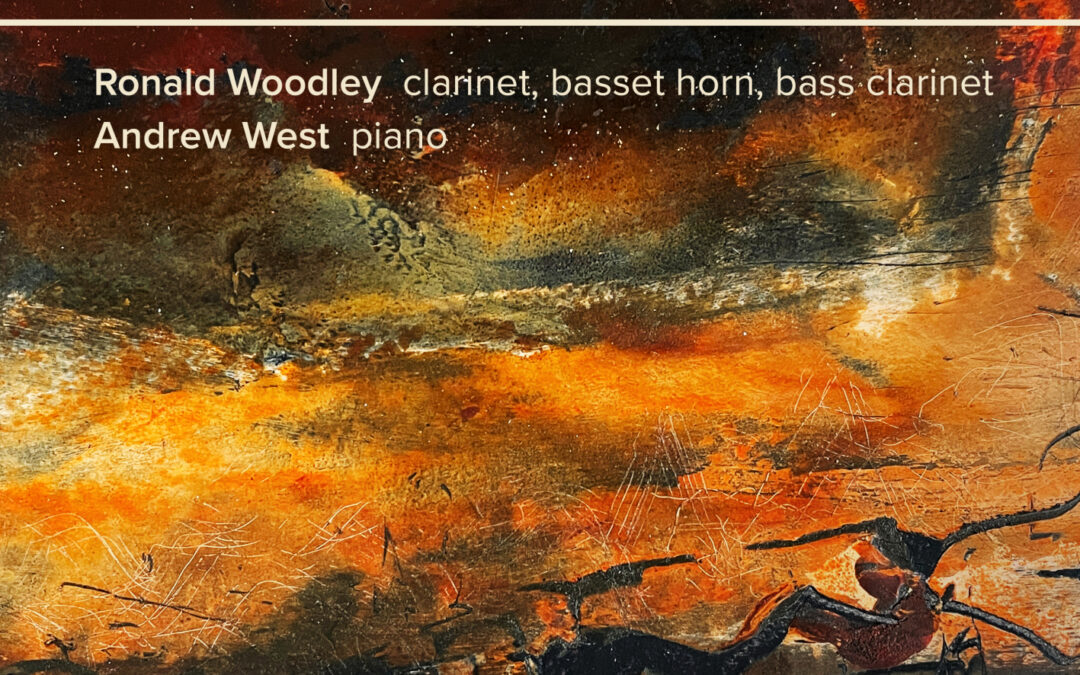Ronald Woodley clarinets
Andrew West piano
METIER MEX77118
This recital for clarinet, basset horn and bass clarinets begins forbiddingly with Elizabeth Lutyens’ apocalyptic The Green Tide. This is Lutyens in High Modernist mode, and initial hearings left me with little more than a generalised atmosphere of questing, sometimes tortured, disquiet. By contrast her Five Little Pieces from 1945 average a minute each: gnomic, angular but also lyrical, they are no hardship to listen to and enjoy.
Angela Elizabeth Slater’s Around the Darkening Sun continues the apocalyptic note. A hectic tangle of interlocking melodic fragments creates a tense sense of unease, released by a final shriek of protest.
The multi-talented Morris Pert is grievously overlooked now. I still have a battered LP by his band Suntreader, and recall his symphony Beltane Rites from its one broadcast. (I even worked on a production of The Tempest for which he provided music). His Luminos for basset horn was recorded on LP (I still have that somewhere, too) and is the longest piece here. Sadly, it shows, recalling the sprawling experimentation of Prog Rock. I was rather losing patience when, at the halfway mark, the music abruptly changed to something almost traditionally (if darkly) pastoral. This is baffling, but not at all unwelcome.
Christopher Fox’s This has happened before for multi-tracked bass clarinets is the calm centrepiece of this recital – four voices in slow canon which finally have the hypnotic effect of lapping waves in a grey Northern sea.
Liz Dilnot Johnson’s The Space Between Heaven and Earth takes as inspiration the myth of Daphne (and Apollo, rather than Niles) and thematic material from Hildegard of Bingen. Moving through four movements/seasons it consequently has a narrative and melodic coherence which is very helpful for the listener’s immediate appreciation.
Edward Cowie has lately enjoyed an Indian Summer of productivity. His Heather Jean Nocturnes are his response to five striking paintings by his artist wife, reproduced in the booklet. I had hoped these would help me with the freewheeling, seemingly improvisatory music. Well, perhaps you really need to see the full-size originals, or perhaps it is simply a matter of familiarisation. I am not there yet, but the composer’s track record (and another old LP of his fine Concerto for Orchestra) predisposes me to keep trying.
Ronald Woodley’s 11 pages of notes could not be more eloquent or more informative. The playing of both performers is beyond reproach. Given a crystal-clear recording, this excellent Métier disc makes the perfect case for some striking, challenging and ultimately rewarding music.
Review by Kevin Mandry

